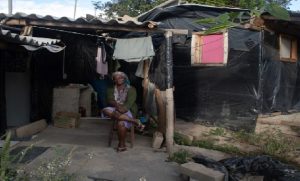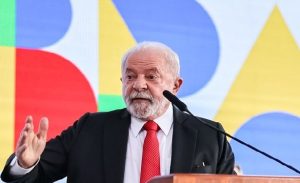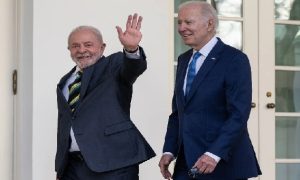09-04-2023
BELO HORIZONTE: A government’s first 100 days in office can be a sort of honeymoon, with voters and politicians hopeful for a new start. But for Brazilian President Luiz Inacio Lula da Silva, despite some signs of progress, the past three months have been marked by a certain weariness.
 In the social arena, his game has been strong, with Lula reinstating programs aimed at bolstering low-income housing, water delivery and financial aid for needy families and after Brazil’s grim return to the World Food Program’s Hunger Map, with more than 33 million Brazilians going hungry last year, Lula relaunched the National Council for Food and Nutritional Security, abolished under former President Jair Bolsonaro.
In the social arena, his game has been strong, with Lula reinstating programs aimed at bolstering low-income housing, water delivery and financial aid for needy families and after Brazil’s grim return to the World Food Program’s Hunger Map, with more than 33 million Brazilians going hungry last year, Lula relaunched the National Council for Food and Nutritional Security, abolished under former President Jair Bolsonaro.
“We can see that he wants to do good things for the poor something the former president didn’t do,” Rosangela de Fatima Silva, who lives in the southeastern city of Diamantina and works at a kitchen serving local housing activists, told media but governing has not been an easy task. The nature of Lula’s coalition government raises a number of internal contradictions, experts have said and without a solid base in parliament, some projects may struggle to get approved.
In addition, the January 8 storming of government buildings by Bolsonaro supporters laid bare the apparent animosity towards Lula among some ranks of the country’s security services, resulting in a wave of dismissals for their alleged inaction.
“Lula 3.0 is different from Lula 1.0 and Lula 2.0,” Evandro Menezes de Carvalho, coordinator of the Center for Brazil-China Studies at the Getulio Vargas Foundation School of Law in Rio de Janeiro, told media.
 “As he returns to office, Lula finds a Congress and society more conservative than the ones from his previous terms. Their agenda is, for the most part, not the same as that of the Workers’ Party,” he added. “Lula no longer has the popularity he once had and Brazil’s economy is no longer the same.”
“As he returns to office, Lula finds a Congress and society more conservative than the ones from his previous terms. Their agenda is, for the most part, not the same as that of the Workers’ Party,” he added. “Lula no longer has the popularity he once had and Brazil’s economy is no longer the same.”
Political capital
Indeed, Lula has been wearing down his political capital with a crusade against the Central Bank over interest rates, questioning the entity’s autonomy under his predecessor. At the same time, he has been criticized for minimizing both allegations of corruption against his communications minister, and accusations of links between his tourism minister and a local militia. Both ministers have dismissed the allegations as distortions.
Parliamentarians, who spoke with media last month on condition of anonymity, said Bolsonaro’s recent return to the country after several months of self-imposed exile in the United States was based in part on an assessment of weakness within the Lula government, including his failure to kick-start an economic recovery.
On the climate crisis, a key focus during Lula’s campaign, observers also have said that they have seen little progress in the first stretch of his term. After the Bolsonaro government weakened the country’s action plan for cutting  emissions, Lula was expected to commit to substantial reductions but “so far, nothing has been said on that matter,” Natalie Unterstell, president of the Brazilian climate policy think tank Talanoa, told media.
emissions, Lula was expected to commit to substantial reductions but “so far, nothing has been said on that matter,” Natalie Unterstell, president of the Brazilian climate policy think tank Talanoa, told media.
Talanoa has been monitoring the revocation of previous government mandates that contributed to the process of dismantling environmental policies across the country, from fishing and logging to Indigenous issues.
“Before the election, we identified 123 mandates that had to be immediately revoked,” Unterstell said, noting that so far, just 15 have been addressed.
“In the first few days after Lula took office, we saw strong signs coming from the federal government, especially in terms of institutional reforms. But since then, progress has been slower, a direct consequence of the dismantling seen in the previous government.” (Int’l News Desk)
 Pressmediaofindia
Pressmediaofindia




